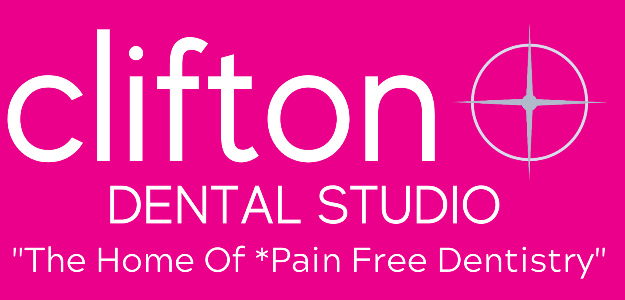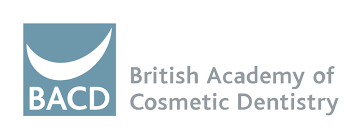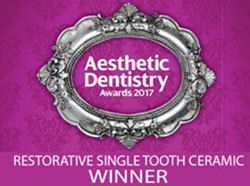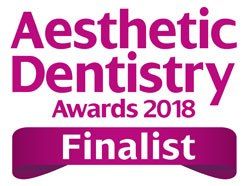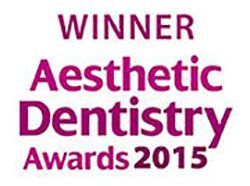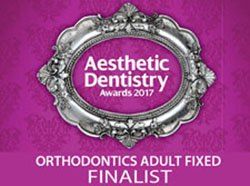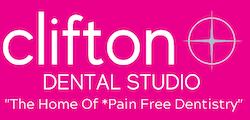Posts Tagged ‘oral hygiene’
Affordable tooth replacement with dental bridge from Bath dentist
Teeth can be lost in a number of circumstances. In some cases it may be a road accident or even a sporting accident. It may just be due to a lack of oral hygiene and tooth decay or gum disease has caused the destruction of the tooth. However you have lost the tooth, a smile with missing teeth is never really a healthy or attractive look and will add years to your appearance. There are also many health reasons why it is important to replace missing teeth with a dental substitution. There are a number of options to replace missing teeth. Dental implants involve using small screws anchored into the jawbone, which are very solid but also quite costly. Partial dentures are another option but van often feel very bulky and may limit what it is possible to eat. One of the most common restorations is a dental bridge. Dental bridges are secured on either side of the missing tooth or teeth by a couple of dental crowns, or if the teeth are in very good condition, with resin bonded strips. A Bath dentist will be able to advise which is the most suitable type of dental bridge at an initial appointment. Dental bridges replace all the part of the tooth visible above the gum to restore the appearance of a full dental arc and also to replace the lost support for the facial structure. They also prevent the other teeth leaning into the vacant space, which can cause misalignment and nasty jaw conditions. A dental bridge can last up to twenty years if it is properly maintained and cleaned like your other teeth. Your dentist will give you tips on how best to care for any dental restoration work you may have.Good oral hygiene makes Weston-super-Mares dentist’s job easier
From an early age we are always taught that if we look after our teeth then they will look after us. Our parents teach us the importance of brushing and flossing and that if we do that correctly we can avoid much unnecessary dental treatment in the future. It seems like such a simple deal to make; clean your teeth and they will stay healthy. Yet it seems by the increase in cases of tooth decay and the fact that 90 per cent of adults in this country will suffer gum disease at some point in their life, that we are perhaps forgetting the valuable childhood lessons. Effective oral hygiene takes place mostly at home but should also include a six-monthly visit to a Weston-super-Mare dentist for a check up. They can make sure that your teeth are in good condition and outline any action you need to take to clean them more effectively. A good oral hygiene routine includes brushing twice a day for three minutes. This should ideally be done with a soft-bristled brush angled at forty-five degrees to the gums. If possible, you should brush your teeth after every meal for the best chance of removing plaque and bacteria but this may not always be feasible. Flossing should be performed carefully once a day. This will help to remove bacteria from the tiny spaces between the teeth and also stimulate the gums around the base of the teeth. Your dentist may also advise you to use a tongue scraper or other dental implement such as an inter-dental brush. Looking after your teeth well should only take you a couple of extra minutes a day. By following the few simple rules laid out for you by a dentist you will hopefully have to see a lot less of them in the future, only stopping in once every six-months for a quick check and a chat.How regular are your dental check ups with Bath dentist?
Dental check ups are one of the most effective ways of keeping your teeth clean and healthy and avoiding unwanted dental complications such as decay and disease. Although the majority of oral hygiene is carried out at home with brushing and flossing it is very important that you give your Bath dentist the opportunity to examine your teeth on a six-monthly basis to check for the telltale signs of dental disease. Brushing and flossing will remove the majority of plaque and bacteria from your teeth and gums if performed correctly but all too often patients miss small spaces between the teeth and around the base near the gums. It is the areas that are hard to reach that your dentist will be able to examine and check for the onset of enamel erosion and tartar. Even the most effective dental hygiene routine can fall foul of decay in the harder to access parts of the mouth. Your dentist will be able to clean these areas and also give advice on how best to look after your teeth in the future. Dental check ups serve a number of other purposes. Oral cancer is on the increase in the UK. This is a very unpleasant disease that can be treated effectively as long as it is caught early. Early treatment of oral cancer will give you a greater than 80 per cent chance of beating the disease, which otherwise could be fatal. Your dentist will check your mouth for the symptoms of oral cancer as part of a routine check up. A dental check up should take little more than half an hour, which every six-months is hardly a lot of time. This half an hour could really make the difference to the health of your teeth and prevent the need for plenty more hours in the treatment chair repairing decayed teeth.Good oral hygiene habits by a Swindon dentist
There are good habits and bad habits; oral hygiene is a good habit to get addicted to. We need certain routines in our lives, and a good healthy set of teeth is a by-product of a good oral hygiene habit says a Swindon dentist. First off the most important part should be flossing; this procedure will eliminate most of the problems we experience with our teeth and bad breath. Flossing gets into all the crevices that hide the plaque which does the most short and long term damage, brushing away the plaque will be made all the more easier and fruitful if we first concentrate on loosening it. Plaque will build up in the mouth mostly at night, for that’s when we stop producing saliva to neutralise the acid that is part of the production process. Brushing can also affect the amount of plaque we leave in the mouth, a good brush should have a healthy amount of bristles on it, and a worn brush will do more damage to the teeth than no brushing at all. A mouthwash alone won’t clean our teeth, it needs a well planned regime and there are plenty of leaflets at your dentist that show you how to plan a regime properly. Oral hygiene also extends to what we eat and snack on throughout the day, and also how we get rid of any acid that comes naturally with those snacks. Fruit contains acid and that attacks the enamel on the surface of our teeth, we need to swish water around the mouth, and vigorously as well, to stop this natural acid damaging the teeth. If we are sticking to government advice and eating our five a day, we need to be aware that it comes with consequences that we need to address.Key to oral hygiene explained by Weston-super-Mare dentist
The essence of good oral hygiene is keeping your mouth free from bacteria, plaque and food debris so that it looks and smells as healthy as possible. This can be indicated by teeth that are clean and free from food particles and staining, gums that are pink and do not hurt or bleed when brushed and breath that does not smell. This can be achieved by adopting a fairly simple but quite regimented system of cleaning and regular dental check ups. Teeth cleaning is carried out most effectively in several stages. The first and most important is brushing your teeth twice a day with an appropriate brush and paste. A Weston-super-Mare dentist can recommend the most suitable products for your particular teeth. Brushing should be carried out gently so as not to damage the gums and at a forty-five degree angle to the teeth for the most effective cleaning. Second to brushing in importance is flossing, which dentists recommend should be performed once a day. Flossing is important because it cleans teeth below the gum line and in the difficult inter-dental areas hard to reach with normal brushes. Both brushing and flossing help to prevent the build up of plaque, a substance that releases damaging acids that cause tooth decay if not removed. They also remove food debris that causes over 90 per cent of cases of bad breath. Further cleaning methods that can benefit oral hygiene are using mouthwashes (always ask your dentist before using), inter-dental brushes and tongue cleaners. Effective brushing and flossing should be enough but these other apparatus can also help in some cases. However, effective cleaning is only really beneficial when teamed with regular check ups with your dentist. Even the cleanest mouth can still be susceptible to dental decay, and only a trained dentist can spot the first signs of decay and gum disease. Dentists recommend a check up every six months to help keep your mouth as healthy and clean as possible.End dental pain with help from Bristol dentist
 Teeth have a very hard enamel exterior that is very durable and strong, but poor standards of oral hygiene or dental trauma can breech this tough exterior exposing the extremely sensitive dental nerve within the tooth. This can cause pain ranging from a mild sensitivity due to extremes of temperature in the mouth from eating and drinking to very severe pain caused by dental infections and abscesses.
Tooth enamel is commonly broken down by plaque acids and tartar in the mouth which, if not repaired with a filling or crown, can expose the pulp and nerve of the tooth to bacterial infection. If the nerve or root becomes infected the body will produce an excess of white blood cells to fight the infection. This can build up on a pocket around the tooth leading to a painful, pus-filled abscess. These can be very painful and can also lead to a spread of the initial infection.
Dental pain can also come in the form of erupting teeth or wisdom teeth buried beneath the gum. These can cause interruption to bite and painful irritation that is very uncomfortable. One of the common features of all dental pain is that it is very hard to control. For someone suffering dental pain it can seem there is little they can do to stop it. In most cases over-the-counter painkillers will be effective but patients should always see a dentist even if the pain appears to have disappeared. In cases of extreme infection or serious gum disease patients may require anti-biotics and more serious pain relief. It is important to remember in all cases of dental pain to see a Bristol dentist as soon as possible.
Teeth have a very hard enamel exterior that is very durable and strong, but poor standards of oral hygiene or dental trauma can breech this tough exterior exposing the extremely sensitive dental nerve within the tooth. This can cause pain ranging from a mild sensitivity due to extremes of temperature in the mouth from eating and drinking to very severe pain caused by dental infections and abscesses.
Tooth enamel is commonly broken down by plaque acids and tartar in the mouth which, if not repaired with a filling or crown, can expose the pulp and nerve of the tooth to bacterial infection. If the nerve or root becomes infected the body will produce an excess of white blood cells to fight the infection. This can build up on a pocket around the tooth leading to a painful, pus-filled abscess. These can be very painful and can also lead to a spread of the initial infection.
Dental pain can also come in the form of erupting teeth or wisdom teeth buried beneath the gum. These can cause interruption to bite and painful irritation that is very uncomfortable. One of the common features of all dental pain is that it is very hard to control. For someone suffering dental pain it can seem there is little they can do to stop it. In most cases over-the-counter painkillers will be effective but patients should always see a dentist even if the pain appears to have disappeared. In cases of extreme infection or serious gum disease patients may require anti-biotics and more serious pain relief. It is important to remember in all cases of dental pain to see a Bristol dentist as soon as possible.
Prevent dental decay with oral hygiene advice from Swindon dentist
 When it comes to oral hygiene the old maxim that prevention is better than cure is never more prevalent. Maintaining a good standard of oral hygiene is completely pain-free and takes as little as a combined 10 minutes a day. When you compare this to just some of the alternatives of ignoring hygiene it becomes quite clear that this small sacrifice is worth making.
When it comes to oral hygiene the old maxim that prevention is better than cure is never more prevalent. Maintaining a good standard of oral hygiene is completely pain-free and takes as little as a combined 10 minutes a day. When you compare this to just some of the alternatives of ignoring hygiene it becomes quite clear that this small sacrifice is worth making.
Bristol dentist recommends six-monthly dental check ups
 In the war against dental decay, after effective brushing and flossing, the most important weapon is a regular dental check up every six months with a dentist. Brushing and flossing are crucial for maintaining a high standard of oral hygiene. They help to control plaque, a bacteria rich substance that is responsible for enamel erosion and tooth decay. But even the most dedicated teeth cleaner can still suffer from dental conditions they will not be able to spot.
For example, even effective brushing and flossing may not be enough to prevent gum disease or tooth decay. Some people are more susceptible to these conditions than others and tooth decay especially develops in areas that are hard to clean and therefore impossible to see. Areas in between teeth and below the gum line can be very difficult to clean and so dental decay can occur without the patient knowing. A dentist will examine all the hard to reach places as part of a thorough check up.
Dentists recommend that you make an appointment every six months. Not only will they be able to carry out a thorough check for the signs of tooth decay and gum disease but they can also examine your diet and cleaning regimes and give you advice on more effective dental care. They will also be able to give your teeth a thorough clean or refer you to a dental hygienist. Dentists can also give advice about the natural discolouration of teeth that occurs with age and the most effective ways to control it.
For patients with certain conditions it may be necessary to visit a dentist on a more regular basis. Smokers and pregnant women are particularly at risk and need to make more regular appointments. A Bristol dentist will be able to further advise you on the need for regular check ups and can carry out a thorough check up for any dental problems.
In the war against dental decay, after effective brushing and flossing, the most important weapon is a regular dental check up every six months with a dentist. Brushing and flossing are crucial for maintaining a high standard of oral hygiene. They help to control plaque, a bacteria rich substance that is responsible for enamel erosion and tooth decay. But even the most dedicated teeth cleaner can still suffer from dental conditions they will not be able to spot.
For example, even effective brushing and flossing may not be enough to prevent gum disease or tooth decay. Some people are more susceptible to these conditions than others and tooth decay especially develops in areas that are hard to clean and therefore impossible to see. Areas in between teeth and below the gum line can be very difficult to clean and so dental decay can occur without the patient knowing. A dentist will examine all the hard to reach places as part of a thorough check up.
Dentists recommend that you make an appointment every six months. Not only will they be able to carry out a thorough check for the signs of tooth decay and gum disease but they can also examine your diet and cleaning regimes and give you advice on more effective dental care. They will also be able to give your teeth a thorough clean or refer you to a dental hygienist. Dentists can also give advice about the natural discolouration of teeth that occurs with age and the most effective ways to control it.
For patients with certain conditions it may be necessary to visit a dentist on a more regular basis. Smokers and pregnant women are particularly at risk and need to make more regular appointments. A Bristol dentist will be able to further advise you on the need for regular check ups and can carry out a thorough check up for any dental problems.
